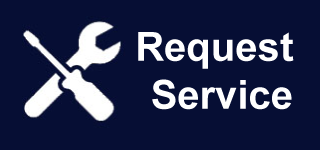European standard prices stayed below 2% relating to Debtwire Par, mainly because of subsidized federal government loans and loan guarantees.
Companies boost liquidity
The IMF forecasts a 4.9% contraction in global growth and GDP of -8% in advanced economies—default rates remain significantly lower than the 10%-plus levels observed in 2009 following the global financial crisis while COVID-19 has had an immense impact on global economies—for example.
Regardless of the interruption to money areas, borrowers could actually consider their 2008 market meltdown playbooks for success techniques, in addition to more present document innovations, fueled by the prevalence of cov-lite and incurrence covenant structures. Businesses relocated quickly to shore up liquidity by drawing down on revolving credit facilities and, in some instances, had the ability to touch high yield relationship areas post-lockdown for extra capital.
Financial Times research shows that significantly more than 130 organizations into the Americas and Europe drew down more than US$124 billion from current lines of credit in March 2020 alone.
Cruise line operator Carnival, hoteliers Hyatt and Hilton and food Mondelez that is multinational, had been one of the organizations in a position to boost liquidity during lockdowns with effective relationship problems.
Because of the increasingly sizeable proportion of loans done on cov-lite terms pre-COVID-19, the possibility of tripping covenants and entering standard ended up being somewhat paid off.
In accordance with Debtwire Par, for instance, more than 50 % of institutional United States leveraged loans granted since 2014 were cov-lite even though the exact same may be said for over three-quarters of institutional leveraged loans released in Europe since 2017.
Incumbent loan providers also have taken a generally speaking pragmatic way of working together with otherwise sound borrowers who arrived under economic force as lockdowns knocked profits.
Forbearance, re re re payment holiday breaks and covenant suspensions or waivers are open to companies that are stretched. The Ford Motor Company, for instance, recently negotiated a 12-month readiness expansion to US$5.35 billion of loans, while Irish aircraft lessor NAC won approval from a team of its loan providers to defer the re re payment of great interest and principal on US$6 billion of their financial obligation.
Financial sponsors, meanwhile, have actually in a few full situations aided to shield their portfolios by providing credit help and guarantees for third-party funding.
So long as organizations have already been in a position to freeze liquidity, it’s been feasible to ride out of the storm.
Distress hotspots
A lot of the credits that defaulted or undertook restructuring this 12 months had been either distressed before the pandemic or perhaps in sectors hardest struck by lockdown measures and travel limitations.
Retailer J.Crew, as an example, recorded a default in Q2 2020, but have been in restructuring processes for months prior. Similarly, circus franchise Cirque du Soleil had to cut staff by the end of 2019 included in a business reorganization. Lockdown conditions then stopped the organization from doing entirely and tipped the company into standard with a missed payment in might.
Chesapeake Energy is one of the most significant energy organizations that defaulted during lockdown, while the oil & fuel industry ended up being buffeted by dropping oil rates, a supply glut and reduced need.
Mixed perspective ahead
The reasonably lower levels of defaults to date this season, therefore the undeniable fact that troubleshooting that is most happens to be limited by specific sectors and situations, has arrived as a pleasant shock. Nonetheless, a surge in standard amounts into the last half for this 12 months and into 2021 continues to be a possibility that is distinct.
The gradual easing of lockdown measures has assisted businesses make contact with company, but virus that is local and also the possibility of an extra revolution are known reasons for care.
It’s also confusing just just just how resilient businesses is likely to be whenever government-backed monetary help measures unwind, specially in Europe. More defaults could emerge since these safety nets are eliminated. More over, while being a vital money conservation measure deployed in response to COVID-19 fallout, the present reductions in CapEx spending will undermine medium-to-long-term monetary performance in a manner that leaves company at risk of future shocks.
Fitch reviews has already been forecasting default that is annual of approximately 4% to 5per cent for European high yield bonds and leveraged loans, also it expects standard prices to keep climbing in 2021 because the complete degree associated with the pandemic’s impact on economies filters through financial obligation markets. A poll of US loan supervisors by S&P LCD, meanwhile, suggests that, on typical, managers are finding your way through standard prices more than 5% this current year.
Standard rates have already been encouragingly low to date, however the market stays unpredictable. For the present time, doubt may  be the norm.
be the norm.








